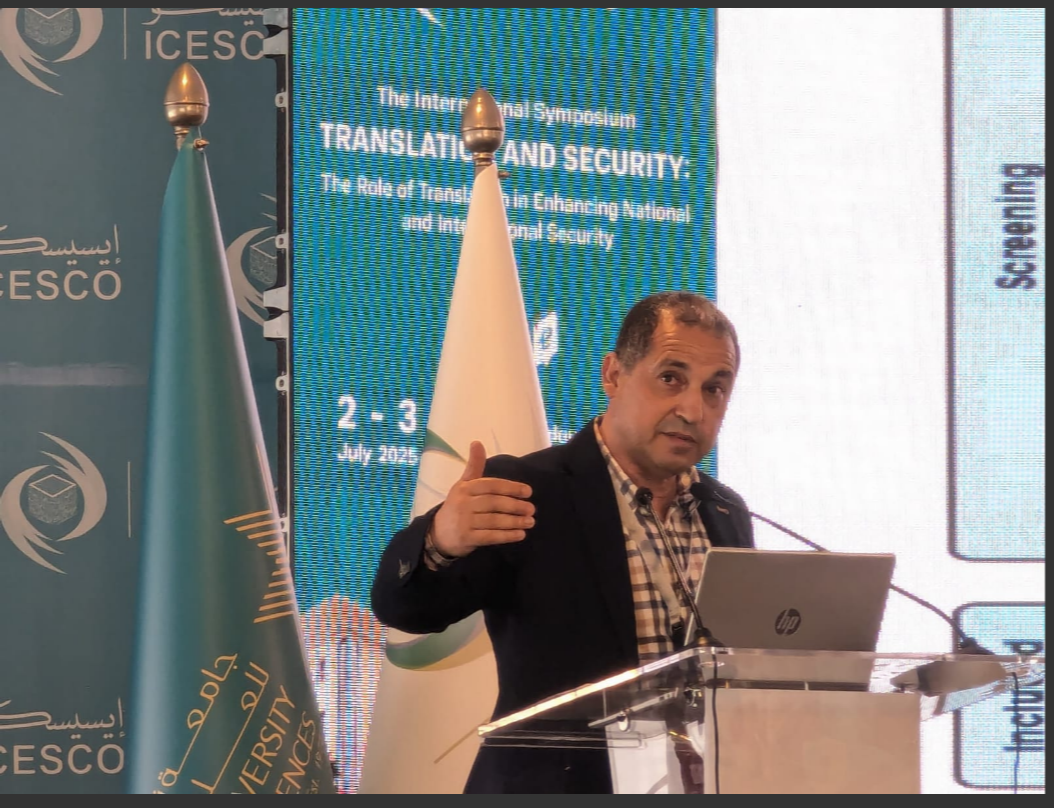In this Blog, you will find interesting posts about my own reflections as a teacher, translation practitioner, trainer and novice researcher, in addition to other interesting themes and issues in the field of education and applied translation studies.
Tuesday, 8 November 2022
Understanding by design.... a good example of the scholarship of teaching and learning: does it work in the Arab Higher Ed context....? to what extent???
Saturday, 18 June 2022
Importance of professional acumen for instructors engaged in professionally oriented programs (application to translation/interpreting programs)
Tuesday, 26 April 2022
Simultaneous interpreting ....fully online!
Saturday, 16 April 2022
Post-Covid curricular practices: Competency models instead of predominantly product, course or text book based models
Monday, 4 April 2022
Linking research, training and practice ( profession)...in which way?
Tuesday, 22 March 2022
Improvement sciences and higher education pedagogy...
Saturday, 13 November 2021
Does Competency Based Education means the end of the empire of textbooks??!
Tuesday, 9 November 2021
Teacher's knowledge framework???
Tuesday, 19 October 2021
The notion of competence in education/training: not abstract as it seems. Let us innovate/look forward instead.
Sunday, 3 October 2021
Internship? practicum? field work? ...in the context of social and human sciences.
Saturday, 2 October 2021
Experiential learning for liberal arts programs!!
A few years ago I worked at a university in the Middle East and at that time the department (of English) was going through the accreditation process. From what I heard the university or accreditors demanded from the literature or linguistics units to demonstrate how experiential learning could be applied in their courses. Faculty in the liberal arts had a real challenge to face by then. Usually, experiential learning takes place in scientific disciplines or professionally oriented programs ( engineering, medicine). Yet, having that new 'intruding' paradigm into an unusual terrain ( liberal arts) was not easy. Courses that cannot integrate the experiential learning dimension are prone to extinction and maybe the closure of the unit ( literature, poetry, drama). I had a broad idea of how experiential learning could be applied in educational and training contexts such as translation, interpreting, business studies, engineering, and medicine. This is because, in addition to my experience with applied languages, I worked with peers during my doctoral studies in the research lab who were working on the disciplines above. At the end of the day, in education development studies we get the tools/techniques and then we collaborate with subject-specific experts to get the job done and fulfilled. In a classroom or lecture theater, the context is typically confined to a fixed space and limited time. Beyond the classroom, learning can be acquired through other sources like visiting a heritage site or museum, being immersed in a good book....or being in the workplace itself. My other colleagues teaching drama, poetry, and literature were bewildered as to how to integrate experiential learning into their courses. Since what the university wants is the economic/social relevance of the courses or the program. I made some inquiries at the international level. I found a professor at one of the universities in Canada who published three articles about this innovative model of teaching
On the symposium on AI & Translation in the field of national security (July 2025 in Morocco-Rabat)
We rarely hear about translation and interpretation in the context of national and international security. I presented a paper at a symposi...

-
In 2021, I contacted the department of education at Western University in the hope to enrolled for my second PhD. At first I thought the ide...
-
I worked in 4 universities in the Middle East(Gulf region). In three of the four universities, I lived the experience of renewing our existi...







